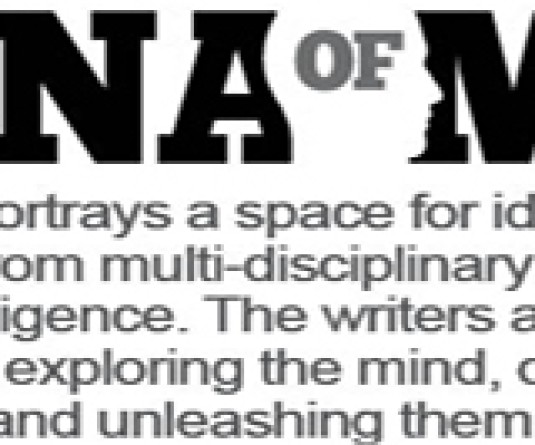
Rev. Fr. C. Joseph, Counsellor
St. Joseph’s College (Autonomous) Jakhama
Unlike a drop of water which loses its identity when it joins the ocean, man does not lose his being in the society in which he lives. Man’s life is independent. He is born not for the development of the society alone, but for the development of his self. - B. R. Ambedkar
They matter in the way we live, move and have our being. Identities of self and others/My/your and our/their personal and social identities are plural by nature and the different strands that make up identities include but not limited to sex, colour, race, ethnicity, ancestry, class, (socioeconomic educational and professional status), nationality, etc. We learn about our own identity and the identity of others through interactions with family, peers, organizations, institutions, media and other connections we make in our everyday life, and they play significant roles in determining how we understand and experience the world, as well as shaping the types of opportunities and challenges we face. By the given and assumed identities we belong to corresponding communities, which are also interlinked. That we belong to a community also excludes us from other communities. Seeing similarities and differences of my/your and our/their identities unfortunately contribute to create hierarchies and discriminations, rather than leading to the realization that we are part of each other and the identities of self and other are inextricably intertwined. The plurality of images of identity and alterity brought by the developments of global transportation and information technology, political, religious and economic immigration and emigration, and the search for safety and investment opportunities have great impacts upon the power relations among individuals, ethnic and religious communities, institutions, government, etc. nationally, regionally and globally.
Human beings organize and collectively define themselves in terms of similarities and differences, as they are perceived and projected. Group identities, membership and belongingness are essential for human survival and well being and though we have a natural tendency to find similarities and differences and categories ourselves to groups, identities, definitions, boundaries, and meanings of the social groups are the product of complex collective and social processes to the advantage of oneself and one’s group, often against the other. Though identities are fluid and socially constructed, once established, the influential people of our lives – family members, teachers and leaders of the society might present them consciously or unconsciously as ‘natural’, and/or even divinely sanctioned. All aspects of our personal and social lives – what we eat, how we dress, whom to marry, what to do, who would rule, etc. – are influenced and governed by these given and assumed identities. These social identities and the shared meanings and the consequent power positions influence our perceptions and relations with members of the groups, mine and yours.
Images of personal and social identities and alterities, are at the source and centre of most local, regional, national and global conflicts like racism, immigration, sectarian violence, territorial disputes and military conflicts. Human beings have a tendency to identify with whom they are grouped together and to judge members of their own group as superior, no matter how arbitrary or even silly the group boundaries may be. Hostility toward the unfamiliar or unknown is quite common in personal and social relationships; even the smallest perceived differences may generate intergroup conflicts. We have all likely experienced personally the discomfort of being in some place or with people where we did not feel that we belong. The image of myself, the way how I view others and how they view me, profoundly influence each other. Their interaction is an essential basis for mutual respect. Thomas Kesselring in his paper “Self-Awareness, Self-Esteem, and Respect for Others: The Genetic Perspective (In Memoriam Jean Piaget, 1896-1980)” investigates their genesis from the perspective of Developmental Psychology, because it gives an overview over the intellectual and emotional prerequisites for social understanding and an insight into the underlying development principles. The analysis is based on the work of Jean Piaget, a 20th century giant in Developmental Psychology. Special emphasis is given to his considerations on egocentrism and its dissolution – decent ration. It will be shown how and why between birth and adulthood the images of self and others undergo profound changes. What initially was a “me” become a person and then a personality. “If ……. People cannot live their multiple belongings, if they constantly have to choose between one side and the other, if they are ordered to get back to their tribe; we have the right to be worried about the basic way the world functions.” The roots of much of the world’s violence are tensions about identity and belonging. To prevent violence, we need to think about identity. In the age of and of the ever-accelerating intermingling of elements in which we are all caught up, a new concept of identity is needed, and needed urgently. We cannot be satisfied with forcing billions of bewildered human beings to choose between excessive assertion of their identity and the loss of their identity altogether, between fundamentalism and disintegration.
“In the social jungle of human existence, there is no feeling of being alive without a sense of identity.” Erik Erikson






